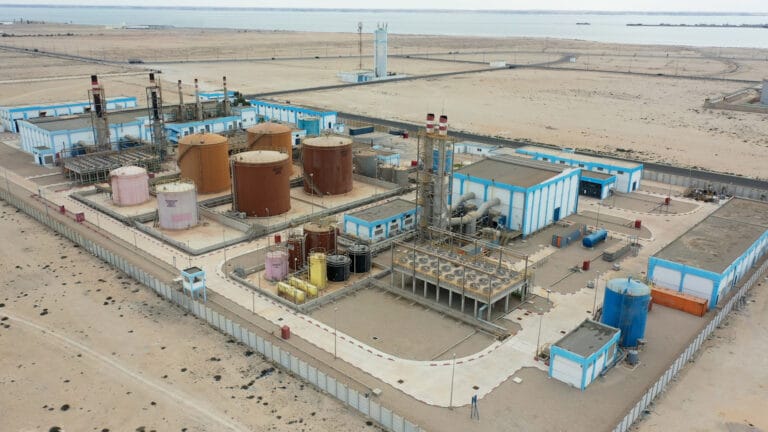About a hundred kilometers north of Dakhla, on the road leading to Boujdour, a large-scale national project is emerging. This is the largest seawater desalination plant in Morocco, fully powered by wind energy. According to the latest figures, the overall progress of the project currently stands at 70%.
Located in Bir Anzarane, this infrastructure aims to address a dual challenge: securing access to drinking water in an arid region while supporting local agriculture through the irrigation of thousands of hectares of crops. Ultimately, 5,200 hectares will be irrigated thanks to this station, with a goal of increasing to 6,500 hectares by 2030, compared to 1,500 today.
The plant itself is 50% completed, while the wind farm that supplies its electricity is over 90% finished and began injecting power into the national grid as early as the end of March. Meanwhile, the irrigation network is already 80% completed.
The project aligns with the directives of the 2024 Throne Speech, which called for the acceleration of desalination plants in response to the growing pressure on the country’s water resources.
For Khalid Yaalaoui, regional director of agriculture in Dakhla-Oued Eddahab, this project represents a major advancement: “It will supply the region with water without affecting the aquifers, while promoting high-value crops.”
Agriculture is already a regional economic pillar with an estimated turnover of 1.4 billion dirhams per year. The production includes 90,000 tons of tomatoes, 13,000 tons of melons, and 1,200 tons of blueberries cultivated on 113 hectares. Livestock farming is also significant, with a herd of 110,000 head and an annual production of 9,000 tons of milk, 1,000 tons of red meat, and 975 tons of white meat.
With a total cost of over 2.5 billion dirhams, this desalination project is also a source of jobs. The agricultural sector in the region already generates about 3 million workdays per year, a figure expected to grow with the upcoming commissioning of the plant.
An exemplary project, both for its social and economic purpose and for its alignment with the Kingdom’s commitments to sustainable development.


